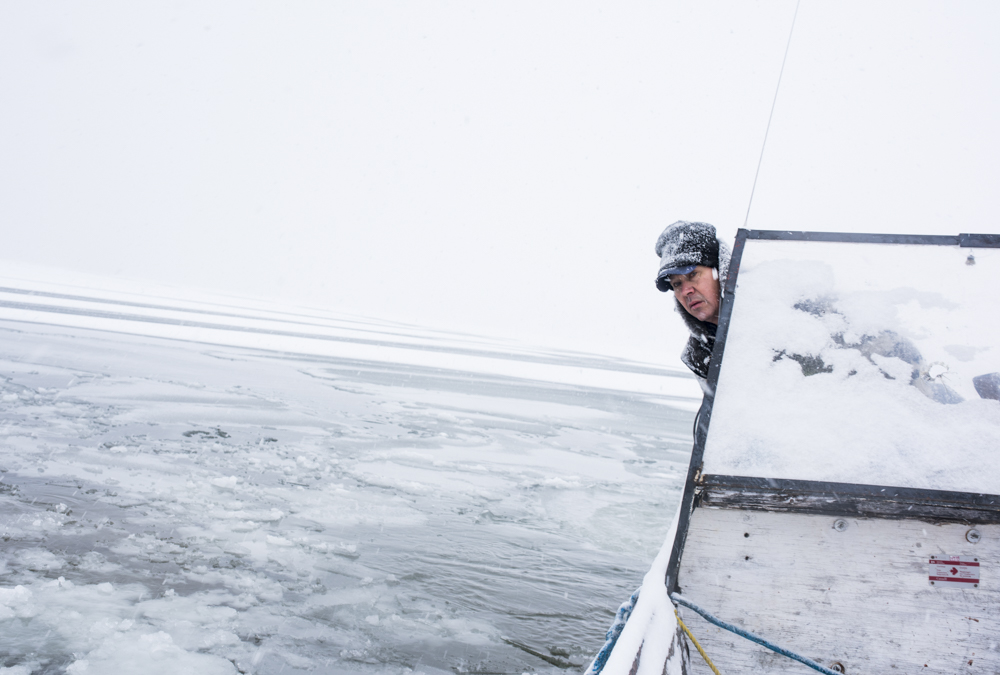Yellowknife is the capital of Canada’s Northwest Territories. The city was colonised by settlers from the south back in the 1930s, who came to the area looking for gold. Those first prospectors set up shacks and shanties on the edge of Great Slave Lake and a nearby island, and those dwellings remained even as the city grew around it over the years.
Today, the shacks and houseboats are still used by prospectors of a different sort – namely people who’ve come here in search of adventure and high paying jobs. Many are young, educated professionals who simply like the novelty of it, others want a simple lifestyle, and a few having been living here for many years and just want to be left alone. They are a colourful collection of bureaucrats, musicians, artists and a handful of curmudgeons.
I moved to Yellowknife in 2005 and was quickly introduced to people in the off-grid community. It’s a very social place, and many people who live here are involved in the local arts, music and media scene, so as a visual artist myself, I became friends with many of them right away.


At first, I thought the people here were all essentially the same kind of person: adventurous hippies who want their own space. I was wrong. The people are a mix from all walks of life, who live off-grid for wildly different reasons. There are bureaucrats, engineers, electricians, lawyers and all sorts of professionals. But there are also some old-timers who simply love the quality of life, and people just looking for a great experience and cheap rent.
While the shacks and houseboats themselves are a big draw for tourists and historians, nobody has really ever photographed the people here. I wanted to give an accurate representation of who they are and where they live. The off-grid community has been covered in film and television before, but those representations have often been very one-dimensional and misleading. I wanted to capture everyone in a way that is honest and accurate.


While working on this project, I learned that you don’t need a lot of space or luxury items to have a great quality of life. I also learned how important it is to look after your home (many people in the off-grid community have to maintain their homes in extreme conditions), so it’s important to not take things like plumbing, structure, and energy for granted.
More than anything, I learned that off-gridders are probably among the largest contributors to the culture and character of Yellowknife. Most of them volunteer and perform at local events, they serve on various boards in the city, they run small businesses and welcome curious tourists into their homes. In my opinion, the people in the off-grid community are probably the best ambassadors for Yellowknife – and they rarely get credit for it.







See more of Pat Kane’s work on his official website, or follow him on Instagram.
Enjoyed this article? Like Huck on Facebook or follow us on Twitter.
You might like

Dalia Al-Dujaili: “When you’re placeless, nature can fill the void”
Babylon, Albion — As her new book publishes, the British-Iraqi author speaks about connecting with the land as a second-generation migrant, plants as symbols of resistance, and being proud of her parents.
Written by: Zahra Onsori

Why Katy Perry’s space flight was one giant flop for mankind
Galactic girlbossing — In a widely-panned, 11-minute trip to the edge of the earth’s atmosphere, the ‘Women’s World’ singer joined an all-female space crew in an expensive vanity advert for Jeff Bezos’ Blue Origin. Newsletter columnist Emma Garland explains its apocalypse indicating signs.
Written by: Emma Garland

Katie Goh: “I want people to engage with the politics of oranges”
Foreign Fruit — In her new book, the Edinburgh-based writer traces her personal history through the citrus fruit’s global spread, from a village in China to Californian groves. Angela Hui caught up with her to find out more.
Written by: Angela Hui

Meet the hair-raised radicals of Berlin’s noise punk scene
Powertool — In his new zine, George Nebieridze captures moments of loud rage and quiet intimacy of the German capital’s bands, while exploring the intersections between music, community and anti-establishment politics.
Written by: Miss Rosen

The rebellious roots of Cornwall’s surfing scene
100 years of waveriding — Despite past attempts to ban the sport from beaches, surfers have remained as integral, conservationist presences in England’s southwestern tip. A new exhibition in Falmouth traces its long history in the area.
Written by: Ella Glossop

We are all Mia Khalifa
How humour, therapy and community help Huck's latest cover star control her narrative.
Written by: Alya Mooro


